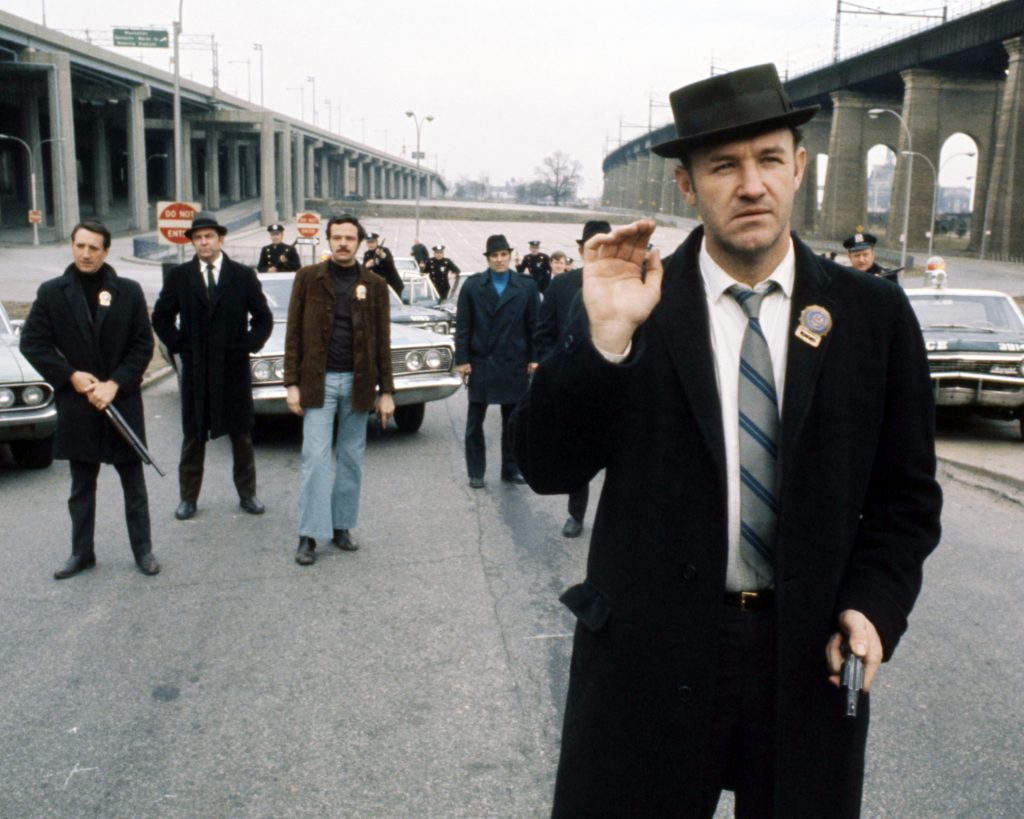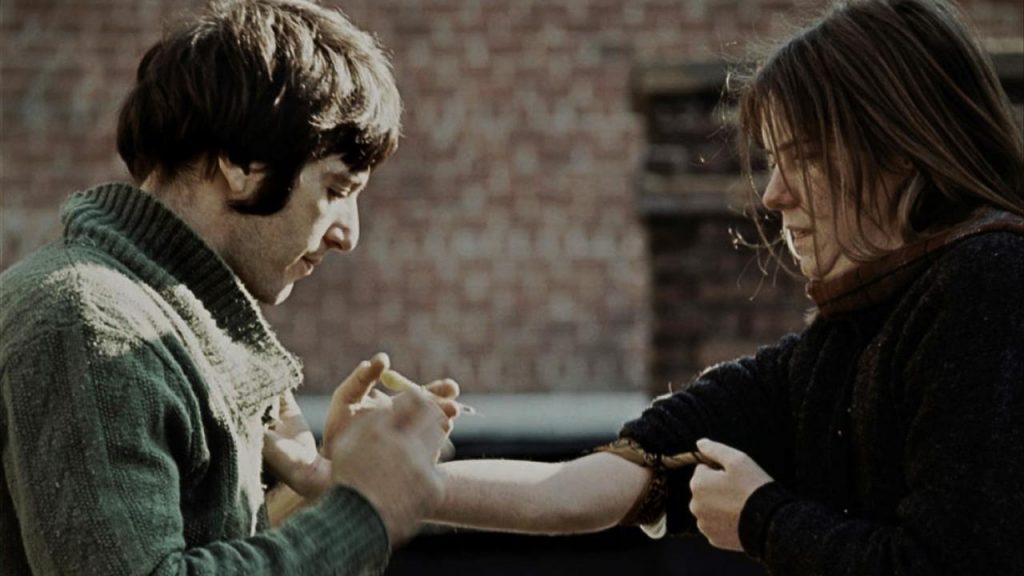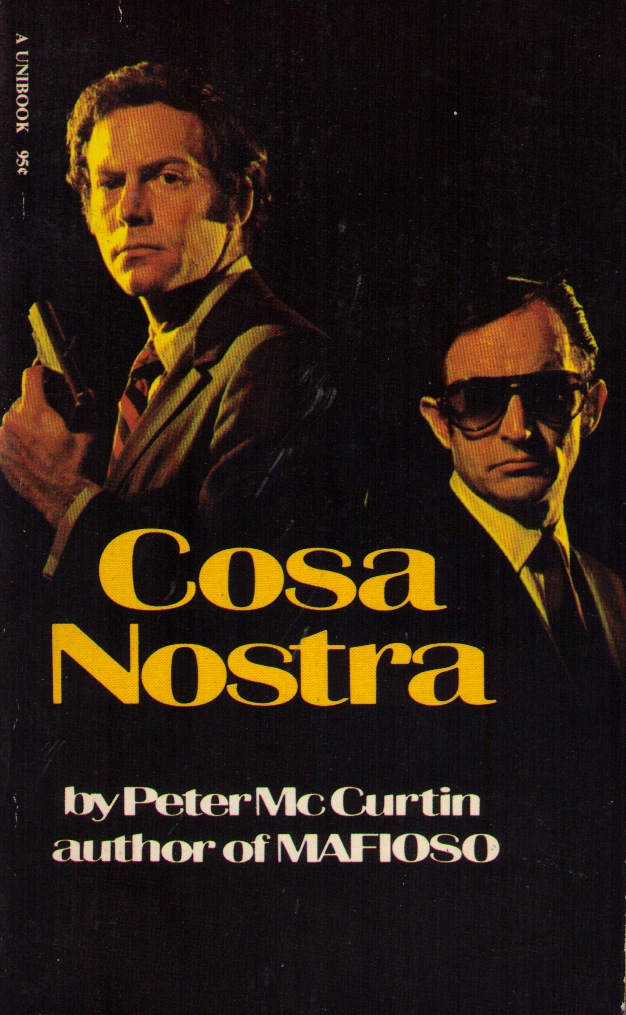Search
-
Recent Posts
- Dishing up Pulp Curry in a new way: why I am starting a Substack newsletter
- Book reviews: Deadly dames, midcentury Brit pulp and 1970s science fiction
- Mackenna’s Gold (1969): Gold, Ghosts and Frontier Violence
- Orphan Road book launch
- Orphan Road now available
- Pre-orders open for my new novel, Orphan Road
- Cover reveal: Orphan Road, my follow up to Gunshine State
- Breakfast in the Ruins podcast: New English Library Bikermania
- Why 1973 was the year Sidney Lumet took on police corruption
- Men’s Adventure Quarterly: Gang Girls issue
Categories
- 1960s American crime films
- 1970s American crime films
- 1980s American crime films
- 1990s American crime films
- Adrian McKinty
- Albert Dekker
- Andre De Toth
- Angela Savage
- Angie Dickinson
- Anthony Zerbe
- Asian noir
- Australian crime fiction
- Australian crime film
- Australian noir
- Australian popular culture
- Australian pulp fiction
- Australian television history
- Ava Gardner
- Beat culture
- Belmont Tower Books
- Ben Wheatley
- Billie Whitelaw
- Black pulp fiction
- Blaxsploitation
- Book cover design
- Book Reviews
- British crime cinema
- British pulp fiction
- Bryan Brown
- Burt Lancaster
- Carter Brown
- Charles Durning
- Charles Willeford
- Chester Himes
- Christopher G Moore
- Christopher Lee
- Cinema culture
- Claude Atkins
- Coronet Books
- Crawford Productions
- Crime Factory
- Crime Factory Publications
- Crime fiction
- Crime fiction and film from Africa
- Crime fiction and film from Cambodia
- Crime fiction and film from China
- Crime fiction and film from India
- Crime fiction and film from Indonesia
- Crime fiction and film from Japan
- Crime fiction and film from Laos
- Crime fiction and film from Latin and Central America
- Crime fiction and film from Malaysia
- Crime fiction and film from New Zealand
- Crime fiction and film from Scandinavia
- Crime fiction and film from Singapore
- Crime fiction and film from South Korea
- Crime fiction and film from Thailand
- Crime fiction and film from the Philippines
- Crime Fiction and film set in Vietnam
- Crime film
- Dangerous Visions and New Worlds Radical Science Fiction 1950 to 1985
- David Goodis
- David Peace
- David Whish-Wilson
- Derek Raymond
- Diana Dors
- Dirk Bogarde
- Don Siegel
- Don Winslow
- Donald Westlake aka Richard Stark
- Dystopian cinema
- Ernest Borgnine
- Eurocrime
- Fawcett Gold Medal Books
- Femme fatale
- Fernando Di Leo
- Filipino genre films
- Film Noir
- Forgotten Melbourne
- French cinema
- French crime fiction
- Garry Disher
- Gene Hackman
- George V Higgins
- Georges Simenon
- Ghost Money
- Giallo cinema
- Gil Brewer
- Girl Gangs, Biker Boys and Real Cool Cats: Pulp Fiction & Youth Culture, 1950-1980
- Gloria Grahame
- Gold Star Publications
- Gregory Peck
- Gunshine State
- Heist films
- Horror
- Horwitz Publications
- Humphrey Bogart
- Ian Fleming
- Interviews
- Ira Levin
- James Caan
- James Crumley
- James Ellroy
- James Hadley Chase
- James Woods
- Jim Brown
- Jim Thompson
- Joel Edgerton
- John Frankenheimer
- Joseph Losey
- Karen Black
- Kerry Greenwood
- Kinji Fukasaku
- Larry Kent
- Laura Elizabeth Woolett
- Lee Marvin
- Leigh Redhead
- Lindy Cameron
- M Emmet Walsh
- Mad Max
- Mafia
- Malla Nunn
- Martin Limon
- Megan Abbott
- Melbourne International Film Festival
- Melbourne Writers Festival
- Men's Adventure Magazines
- Michael Caine
- Michael Fassbender
- Mickey Spillane
- Monarch Books
- Ned Kelly Awards
- Neo Noir
- New English Library
- Newton Thornburg
- Noir Con
- Noir fiction
- Non-crime reviews
- Oren Moverman
- Orphan Road
- Ozsploitation
- Pan Books
- Parker
- Paul Newman
- Peter Boyle
- Peter Corris
- Peter Strickland
- Peter Yates
- Poliziotteschi
- Pulp fiction
- Pulp fiction in the 70s and 80s
- Pulp fiction set in Asia
- Pulp Friday
- Pulp paperback cover art
- Qui Xiaolong
- Raymond Chandler
- Richard Burton
- Richard Conte
- Robert Aldrich
- Robert Mitchum
- Robert Ryan
- Robert Stone
- Rock Hudson
- Roger Smith
- Rollerball
- Rosaleen Norton
- Roy Scheider
- Rural noir
- Sam Levene
- Sam Peckinpah
- Samuel Fuller
- Science fiction and fantasy
- Scripts Publications
- Sidney Lumet
- Sidney Poitier
- Simon Harvester
- Snowtown
- Snubnose Press
- Spies
- Stanley Baker
- Sterling Hayden
- Steve McQueen
- Sticking it the the Man Revolution and Counter Culture in Pulp and Popular Fiction 1950 1980
- Stuart Rosenberg
- Tandem Books
- Tart noir
- Tartan Noir
- Ted Lewis
- Toni Johnson Woods
- True crime
- Vicki Hendricks
- Victor Mature
- Vintage mug shots
- Vintage pulp paperback covers
- Wallace Stroby
- War film
- Westerns
- William Friedkin
- Woody Strode
- Yakuza films
- Yaphet Kotto
Nothing but noir
Recommended reading
The lurid world of pulp
- 20th century Danny Boy
- American Pulps
- Bear Alley
- Bloody, Spicy, Books
- Comics Down Under
- Everything second hand
- Existential Ennui
- Greenleaf Classic Books
- Irv O. Neil's Erotica is My Trade
- Killer Covers
- Lost Classics of Teen Lit 1939-1989
- Luminist Archives
- Men's Pulp Mags
- Mporcius Fiction Log
- Murder, Mayhem and Long Dogs
- Neglected Books
- Nocturnal Revelries
- Paperback Warrior
- Paperbacks of the Gods
- Pop Sensation
- Pulp artists
- Pulp Covers
- Pulp Crazy
- Pulp Flakes
- Pulp International
- Pulp Magazines Project
- Pulp Serenade
- Realms of the Night
- Romance Fiction Has a History
- Rough Edges
- Sin Street Sleaze
- Spy Guys and Gals
- The department of Afro American Research Arts & Culture
- The Dusty Bookcase
- The Haunted World of Richard Sala
- The Moon Lens
- The Nick Carter & Carter Brown Blog
- The Pulp & Paperback Fiction Reader
- Too Much Horror Fiction
- True Pulp Fiction
- Vault of Horror
- Vintage Nurse Romance Novels
- Vintage Romance Novels
- Welcome to the Pan Paperback
- Yellow and Creased
Support This Site
If you like what I do please support me on Ko-fi
Tag Archives: The Godfather (1972)
Ten crime films about drug trafficking to see after The French Connection
In the process of researching and writing my latest piece for the CrimeReads site, on the real-life drug trafficking network that inspired William Friedkin’s ground-breaking 1971 crime film, The French Connection, I compiled a list of other movies directly or indirectly related to the film’s themes, the actual events that informed it, or that were influenced in some way by Friedkin’s classic. I didn’t have the space to include these details in my CrimeReads piece, but the list is below.
Panic in Needle Park (1971)
Around the same time that Popeye Doyle and Buddy Russo were pursuing Frog One through the winter streets of New York, The Panic in Needle Park was giving cinema goers a very different picture of the city’s heroin trade. Based on a 1966 novel and adapted for the screen by Joan Didion and John Gregory Dunn, Jerry Schatzberg’s film is an incredibly downbeat look at the trouble romance between two denizens of New York’s heroin scene, young addict, Helen, the very underrated Kitty Winn, and small-time dealer Bobby, played by Al Pacino. It has been a while since I’ve seen The Panic In Needle Park but from memory it depicts the full spectrum of drug scene related experiences, including police harassment, prostitution, and the chemical highs and lows of addiction.… Read more
Posted in 1960s American crime films, 1970s American crime films, 1980s American crime films, 1990s American crime films, Anthony Zerbe, Crime fiction and film from Thailand, Crime film, Gene Hackman, John Frankenheimer, Mafia, Poliziotteschi, Robert Stone, Sidney Lumet, Stuart Rosenberg, William Friedkin
Tagged Air America (1990), Dirty Harry (1971), Enzo G. Castellari, Fabio Testi, Gene Hackman, Hit (1973), Jerry Schatzberg, John Frankenheimer, Midnight Express (1978), Panic In Needle Park (1971), Prince of the City (1981), Roger Spottiswoode, The French Connection (1971), The French Connection II (1975), The Godfather (1972), The Heroin Busters (1977), Who'll Stop the Rain (1978), William Friedkin, Year of the Dragon (1985)
Parker on the screen #3: The Outfit (1973)

The third instalment of my series on Parker on the screen is the 1973 film, The Outfit, written and directed by John Flynn, based on the 1963 Donald Westlake novel of the same name (one of three Parker novels Westlake wrote under the Richard Stark pseudonym that year, the others being The Man with the Getaway Face and The Mourner).
The book opens with a botched hit on Parker while he is enjoying one of his post-job trysts. It forces the professional thief to come to the conclusion that he needs to settle his ongoing feud with the shadowy crime organisation known as the Outfit once and for all. He puts word out through his various criminal networks that the unofficial underworld truce with the Outfit is over and it is now fair game. What follows is a series of independently run operations as various freelance criminal groups start hitting the organisation’s money-making activities while Parker goes after its leader, a man named Bronson. It has been a while since I read The Outfit, but I remember thinking it was definitely one of the better Parker novels.
The film starts with a hit on a man working on a remote farm. Next we see Earl Macklin (Robert Duvall) getting out of jail where he has been doing a stint for carrying a concealed firearm (a scene very reminiscent of Steve McQueen’s release from jail in Sam Peckinpah’s The Getaway a year earlier).… Read more
Posted in 1970s American crime films, Crime film, Donald Westlake aka Richard Stark, Heist films, Jim Thompson, Karen Black, Neo Noir, Parker, Robert Ryan, Sam Peckinpah
Tagged Best Seller (1987), Donald Westlake aka Richard Stark, Elisha Cook Jr, Henry Jones, Jane Greer, Joanne Cassidy, Joe Don Baker, John Flynn, Karen Black, Point Blank (1967), Richard Jaeckel, Robert Duvall, Robert Ryan, Rolling Thunder (1977), The Godfather (1972), The Man With the Getaway Face, The Mourner, The Outfit (1973), Timothy Carey
Celluloid Apocalypse’s mini-festival of seventies Italian crime cinema
 The Melbourne based purveyor of boutique VHS, Celluloid Apocalypse, is about to unleash upon the world its special VHS edition of Mike Malloy’s excellent documentary, Eurocrime! The Italian Cop and Gangster Movies that Ruled the 70s. The documentary is a fascinating examination of the wave of Italian ‘poliziotteschi’ films that reached the height of its popularity in the mid-1970s, in response to the success of films like The French Connection (1971), The Godfather (1972) and the Dirty Harry films.
The Melbourne based purveyor of boutique VHS, Celluloid Apocalypse, is about to unleash upon the world its special VHS edition of Mike Malloy’s excellent documentary, Eurocrime! The Italian Cop and Gangster Movies that Ruled the 70s. The documentary is a fascinating examination of the wave of Italian ‘poliziotteschi’ films that reached the height of its popularity in the mid-1970s, in response to the success of films like The French Connection (1971), The Godfather (1972) and the Dirty Harry films.
The films are fast past paced, ultra violent, ultra hard boiled and, at first glance, appear to yet another in the cycle of Italian rip-offs of successful American crime films, in much the same was as Spaghetti Westerns riffed off the popularity of the US Western. But while these films were cheaply made and quickly produced, for the most part they are far more interesting and sophisticated than simple knock offs.
While they utilised, and sometimes just plain copied, the standard tropes of seventies Hollywood crime film, they also interrogated uniquely Italian issues, including political dominance of organised crime, the wave of politically inspired terrorism characterised the country’s so-called ‘years of lead’, and the changing nature of society and gender relations in Italy. Another fascinating aspect is the fact that in addition to their Italian stars, many of these films boast performances by well known American and British actors who took the roles after their domestic film careers had began to decline.… Read more
Posted in 1970s American crime films, Eurocrime, Fernando Di Leo, Poliziotteschi, Woody Strode
Tagged Adolfo Celi, Celluloid Apocalypse, Cyril Cusack, Eurocrime! The Italian Cop and Gangster Movies that Ruled the 70s, Fernando Di Leo, Henry Silva, Luciana Paluzzi, Mario Adorf, poliziotteschi, The French Connection (1971), The Godfather (1972), The Italian Connection, Umberto Lenzi, Violent Naples (1976), Woody Strode
Warren Oates, Gloria Grahame & other subjects for fiction anthologies
 The recent release of Crime Factory’s LEE, an anthology of crime fiction inspired by the life of iconic actor Lee Marvin, has got me thinking about who else would be a good subject for similar treatment.
The recent release of Crime Factory’s LEE, an anthology of crime fiction inspired by the life of iconic actor Lee Marvin, has got me thinking about who else would be a good subject for similar treatment.
There’s already been a bit of chatter on Twitter about other actors people would like to see as the subject of their own fictional anthology, and several authors have contacted me with ideas.
There are only two criteria involved I can think of in choosing a subject.
First, the subject concerned has got to be deceased, preferably passed a while ago. It’s just too complex, legally and other ways to do an anthology based on someone living.
Second, there’s got to be something about them. Not just an interesting body of cinematic work and an interesting life, but an ongoing cultural resonance or zeitgeist that sets them apart from other actors and allows crime writers discuss broader issues.
Here are my picks for actors I think would be good subjects. And I should stress, these are just my musings and in no way reflect what Crime Factory will do in the future.
That said, you never know….
Warren Oates
There’s already been a bit of social media chatter about the possibility of a Warren Oates inspired anthology.… Read more
Posted in 1960s American crime films, 1970s American crime films, Film Noir, Gloria Grahame, Lee Marvin, Richard Burton, Stanley Baker, Sterling Hayden
Tagged 92 in the Shade (1975), Asphalt Jungle (1950), Badlands (1973), Bit Heat (1953), Bring Me the Head of Alfredo Garcia (1969), Cockfighter (1975), Dillinger (1973), Hell Drivers (1957) The Criminal (1960), Hell is a City (1966), In a Lonely Place (1950), innocent Bystanders, Johnny Guitar (1954), LEE, Lee Marvin, Major Dundee (1965), Naked Alibi (1954), Odds Against Tomorrow (1959), Race with the Devil (1975), Sam Peckinpah, Stanley Baker, Stanley Kubrick, Sterling Hayden, Stripes (1981), The Godfather (1972), The Guns of Navarone (1961), The Killing (1956), The Wild Bunch (1969), Two Lane Black Top, Warren Oates
Pulp Friday: Mafia pulp fiction
The Mafia, Cosa Nostra, the Mob, the Family, the Outfit, the Syndicate, call them whatever you like, it’s hard to overstate the influence organised crime had over pulp fiction.
My post on the Andrew Dominik movie Killing Them Softly earlier this week, got me thinking about how the Mafia have been portrayed in popular fiction and film.
One of the aspects of Killing Me Softly I found so interesting was its depiction of organised crime in the traditional sense as being just a shadow of its former glory. For the most part, the gangsters were a bunch of clapped out old men and cautious time servers, clinging desperately to the last trappings of their power base.
It wasn’t always so. Stretching right back to the late forties, organised crime was one of the central pre-occupations of pulp writers. The phenomenal success of Mario Puzo’s book, The Godfather, published in 1969 and the subsequent movie version by Francis Ford Coppola in 1972, saw pulp’s fascination with the Mafia stretch well into the seventies.
In addition to novels examining every aspect of the Mafia’s rituals and existence, so all pervasive and powerful was the Mafia’s reach, pulp writers invented a series of characters that existed just to fight it.
Robert Briganti or ‘the Assassin’ as he is known, “lives only to destroy the Mafia.”… Read more
Posted in Belmont Tower Books, Crime fiction, Fawcett Gold Medal Books, Mafia, Pulp fiction, Pulp fiction in the 70s and 80s, Pulp Friday, Pulp paperback cover art, True crime, Vintage pulp paperback covers
Tagged Albert Conroy, Fawcett Gold Medal, Francis Ford Coppola, Mafia pulp, Mario Puzo, Peter McCurin. Mack Bolan, The Executioner, The Godfather (1972)






















